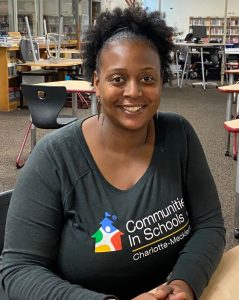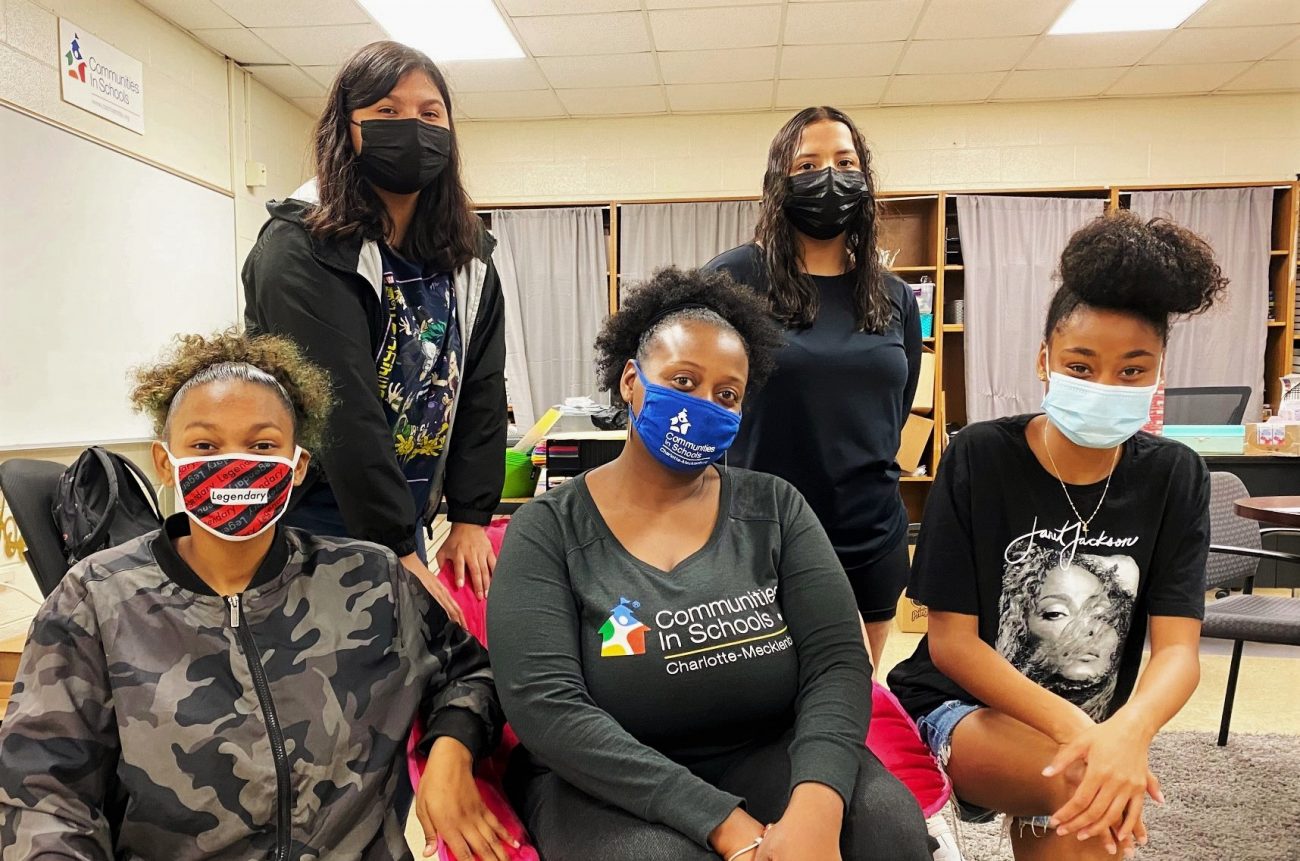We recently sat down with Alaina Williams, an Intensive Case Manager (ICM) with CIS at Harding University High School, and held a “Q & A” to hear first-hand what it’s like to be back in the schools and the challenges she is seeing. Our ICM staff carry a smaller caseload than our other Site Coordinators, typically 25-30 students/families. The ICM’s priority is to provide stabilization and holistic services for these students/families experiencing crisis and/or trauma.
Q. You’ve been in school for a few weeks now, with all staff and students back in-person, which is a pretty big change from last year where nearly the entire year was completely remote. What does it feel like to be back in-person? In general, how would you describe the mood/atmosphere in the school, for students, teachers, everyone?
 Students as well as staff are excited and happy to have a sense of “normalcy” return. However, there are many that are fearful. We are still dealing with the effects of COVID, with several students and staff having contracted it during the first few weeks. Additionally, we are experiencing fallout (fights, violence, staff shortage, combating instructional loss) from events that occurred during remote learning last year and over the summer.
Students as well as staff are excited and happy to have a sense of “normalcy” return. However, there are many that are fearful. We are still dealing with the effects of COVID, with several students and staff having contracted it during the first few weeks. Additionally, we are experiencing fallout (fights, violence, staff shortage, combating instructional loss) from events that occurred during remote learning last year and over the summer.
Q. Last year when the pandemic hit, the immediate crisis for many of our families was food insecurity. Then as job loss and loss of income occurred, we saw needs increase for housing/rent and other basic needs. Students and their parents needed support with technology, learning platforms and social-emotional trauma as well. What are the greatest needs and challenges you are seeing now as this school year gets underway?
Food shortage is an ever-present barrier with some members of our student population, however, it does not appear to be as widespread as it was during the onset of COVID. The biggest barriers that my students and families are combating include mental health issues, effects of instructional loss, community violence, navigating the educational system with a positive COVID diagnosis, and childcare.
Q. As an Intensive Case Manager for CIS, what are your top priorities and goals in meeting the needs of the students and families on your caseload?
My priority as an ICM is to maintain weekly communication with my families. With the population I serve, means of communication are frequently disrupted (i.e., telephone gets disconnected, internet gets disconnected, etc.). Therefore, I am taking full advantage of being on campus, where I can see my students in person. Next, I am constantly assessing for need, although I do so informally, again, through constant communication. Next is school attendance, then academic performance. Academic goals for my student population include accrual of at least 8 credits per year, to progress to the next grade.
Q. What does “success” look like for you in your role and/or for your students?
As an ICM, I measure success from a holistic perspective. I absolutely want for my students to be timely/present, and performing strong academically every day. However, I am also concerned with their physical and mental fitness, home life, social circles, and support systems. When all or most of these areas are performing successfully, leading my student/family to self-sufficiency, I consider it to be success.
Q. If you could share one message with those not involved in schools on a day-to-day basis, what would you want them to know or understand?
This is such a powerful question! My day to day is so fulfilling, yet positively draining, because I pour so much into these youth, by just allowing them to feel safe and be themselves, if only for that moment… Our students are so creative, industrious, resourceful, funny, talented, wise beyond their years. They are indeed the future, and the one thing that I love, is that they are all unique and individual, and beautiful, however they present… We know that this world, however, is not always beautiful, and that’s where we come in. When given the opportunity to engage with our students, please don’t look at them as an anecdote, data point, or statistic… Really engage with them in a genuine and authentic way, and you will be surprised at the gems that lie within.
